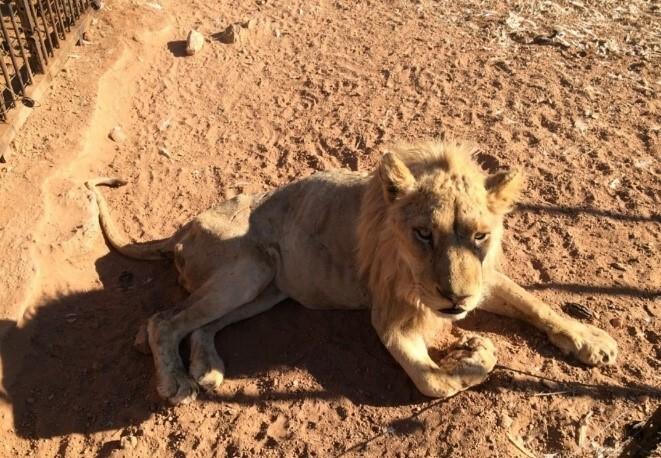
Welfare Concerns
Serious welfare concerns persist in the captive breeding and keeping of indigenous and exotic predators for commercial exploitation, particularly with the increasing profit-driven commodification of lion products.
Some of the more general welfare concerns include cruelty, unnatural behaviour, unsuitable conditions, disease, lack of medical care, and distress, but also a disregard for the animals most basic needs, such as water, adequate and suitable food and shelter. Inbreeding is also common which creates offspring with compromised health and even deformities.
Animal Welfare and the Lion Bone Trade
In the breeding and keeping of lions for the lion bone trade there is no incentive to keep lions healthy, when all that will be used are the bones. In an attempt to maximise profits, welfare is not a priority for many lion facilities and the lack of adequate basic animal welfare conditions, such as sufficient water, food, shelter and medical care, is inevitable, leading to malnourished and diseased lions.

Earlier this year, the owner of a facility in the North West Province was charged by the NSPCA with animal cruelty. Inspectors found 27 lions with severe mange, several lion cubs unable to walk due to Meningoencephalitis, obese caracals unable to groom themselves, overcrowded and filthy enclosures, inadequate shelter, lack of water, and parasitic conditions.
Lion slaughterhouses have been established to facilitate the mass killing of lions to supply skeletons for international trade with no regulations in place creating a range of welfare concerns. Lions are kept sometimes for days in cramped cages, unable to stand up let alone turnaround, without access to adequate food and water, waiting for their turn to be slaughtered.
Animal Welfare and Tourism Interactions
Animal welfare issues are also associated with tourism interaction, such as cub petting and walking with big cats. Some of these concerns include, removing cubs from their mothers sometimes within days of birth to trigger oestrous in the adult female, so that she can breed again as soon as possible; cubs being raised by humans; the handling of cubs for many hours per day, when such young animals should be sleeping most of that time; and a substandard quality of life.

Welfare Legislation in South Africa
South Africa has no national norms and standards for the breeding and keeping of predators in captivity to address animal welfare and/or health concerns, an issue that straddles the mandates of Department of Environment, Forestry and Fisheries (DEFF) and Department of Agriculture, Rural Development and Land Reform (DARDLR).
Existing legislation, such as the Animal Protection Act of 1962 and the Performing Animals Protection Act, are outdated and were never intended to deal with the welfare of wild animals held in captivity.

